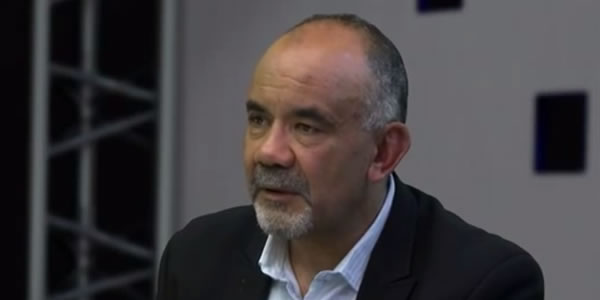Earlier this week Maori Party leader Te Ururoa Flavell hung out his flag as the newly appointed Minister of Maori Development. He did so by quite rightly calling time on National’s smug response to news that fewer young people are heading to court. While overall numbers are down, the over-representation of Maori among youth in trouble with the courts continues to rise. Whatever has been done to get youth crime down, it doesn’t appear to have helped Maori.
Flavell has long been drawing attention to inequities in the justice system. It’s not just that Maori are over-represented in New Zealand’s prisons, they are over represented at every stage of the process. For a given crime Maori are more likely to be prosecuted, convicted and sentenced to imprisonment. This isn’t watertight proof, but as Flavell says, it points to a procedural bias that could amount to institutionalised racism. We have seen this before in our work in the health system where a Maori person was less likely to get treatment for the same conditions as a Pakeha. At the very least this issue requires a good long look.
Working out whether there is institutional bias, and removing it if it exists, should be a top priority of government. Prison sentences have well documented intergenerational impacts and so the costs of ethnically-biased miscarriages of justice are substantial. Having a parent in prison significantly increases the risk for children – that they will struggle at school, have poor health and end up in prison too. Everything that can be done to make sure young Maori aren’t unfairly given a term in prison should be done. If we can do that, there will be huge dividends in terms of outcomes for their children. Given the high cost to tax payers of keeping someone in prison, anything that can be done now to keep at-risk children out of prison in the future will also pay for itself in time. And of course, if an institutional bias exists we have a serious abuse of human rights on our hands, and that is unacceptable on any level.
So do we have a racial bias in the justice system as the Minister asserts? A 2012 report by the Ministry of Justice to the UN discussed the issue and concluded that investigation into the issue had been inadequate. The research was “characterised by a host of methodological problems” with the result that we know no more about the issue than before. The 2012 report went on to say that so far policies to address the over-representation of Maori in the criminal justice system had been elusive – which of course begs the question about bias in sentencing.
However, some progress has been made on policy to address Maori over-representation since 2012. In 2008 a pilot scheme to move the family conference aspect of the youth court into the Maori community itself, using the usual youth court judges but having the hearing in the local Marae, began in Gisborne. It was an initiative led by Judge Hemi Taumaunu.
At the time it was becoming obvious that the family and whanau-friendly processes introduced into the youth court weren’t working for the very kids who had the highest risk of reoffending – those who didn’t have a close network of family and whanau. The Rangatahi Court, as the pilot has subsequently become known, involved local Maori leaders as well as whanau and the usual judges and Ministry of Justice officials. The idea was to connect youth with their whanau and local community via the court process, providing the networks and support needed by the youth to avoid reoffending.
The results from that pilot were so encouraging in terms of reduced reoffending rates that there are now 13 Rangatahi courts around the country, as well as a Pasifika youth court modeled on the same approach. The expansion has been driven by Judge Taumanu and Principal Youth Court Judge Andrew Becroft. However the initiative has a fragile existence. The courts rely on good collaboration between government agencies and the community groups who help support the youth who appear before the court. You’ve only got to take a look at the fraught relationship between community service providers and the Ministries of Education or Health to see how rare good collaboration is.
Outgoing Minister Ann Tolley responded that Maori were over-represented in the prison population because they committed more crime. This misses the point the incoming Minister is making. He argues Maori are getting done by the police, by the legal process and by the sentencing process. These are very serious charges – and as the report to the UN showed, we don’t know if it is true or not, but it’s a significant worry. The Rangatahi court example illustrates that the legal and sentencing regime can do better. The challenge now is for the police to show they can do better too.
It is understandable that Flavell would want to highlight the headline figures, which show a lack of progress for Maori youth. However by emphasising the bad news and not acknowledging that good collaborative efforts are being made, the new Minister risks undermining Maori confidence in the justice system and with it the fragile but very successful Rangatahi courts. It would be a tragedy if his calling into question of the entire justice system led to a breakdown in government-community relations or slowed the roll-out of initiatives found to work to the benefit of Maori and Pasifika.

